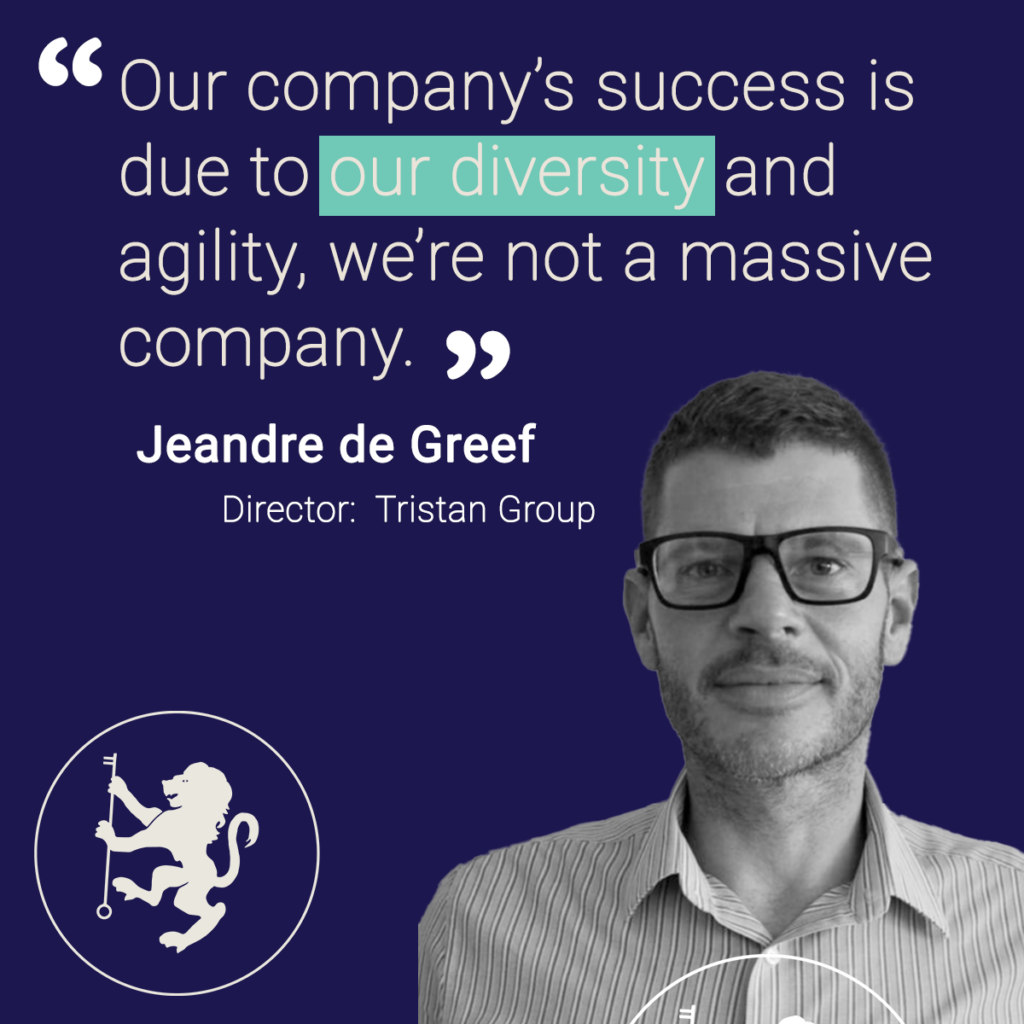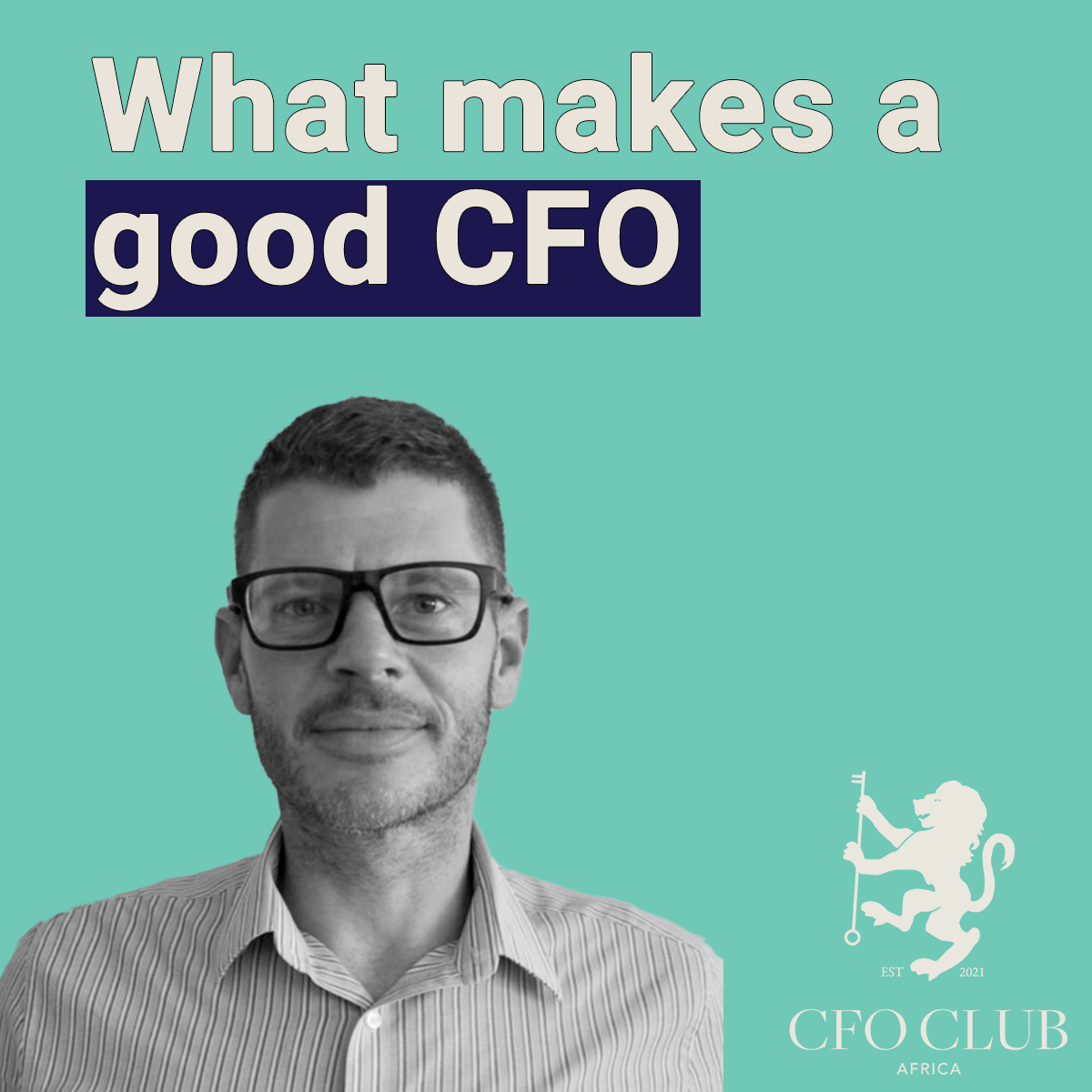Jeandre de Greef is the CFO and Director of the Tristan Group, which provides procurement and project solutions to energy, construction, mining and shipping industries in many African countries.
Before joining Tristan, Jeandre held executive positions at Lonrho Seafoods, the Triple M Group and Nexxus. He has a BCom from Unisa, majoring in financial management and financial accounting, and is registered as a Business Accountant in Practice at CIBA. His route, which didn’t include the traditional CA path, shows that there are many ways to become a CFO.
1. Be interested in numbers and people
“Numbers have always appealed to me along with an interest in people,” says Jeandre. This combination has helped me throughout my accounting career. Also, from an operational side, it’s important to understand the challenges of every department and how to bridge them,” he says.
2. Operations add a new element to CFO role, but accounting remains key to financial wellbeing
The CFO role has changed, with operational elements now falling within the CFO’s scope. “That’s probably the biggest new element but accounting is still the main underlying responsibility,” says Jeandre. “My responsibility is the financial wellbeing of the group, a very broad statement. It involves accounting, tax efficiencies, operational requirements and the business’ overall operational efficiency. Operating in Africa comes with a great level of risk, assessing that risk is important. I’m also responsible for the financial strategic objectives: where we are heading from a financial perspective, is that in line with the group vision and, if not, how to bridge any discrepancies?” he says.

3. Core executive built on trust is key
“Our company’s success is due to our diversity and agility, we’re not a massive company. Having a core team with a high level of trust is key because certain tasks overlap portfolios making communication very important,” he says. “We need to make decisions relatively quickly so the interaction between the top executives is important for clarity and to ensure we’re moving in the same direction.
4. Finding good partners to mitigate challenges
“Operating in Africa, one of the biggest challenges is the tax authorities that try to extract the most tax possible not necessarily based on concrete evidence and often without substance. To manage this process is intense and it requires a lot of energy. It’s impossible to do this alone, so we partner with good legal and financial people in the respective countries, and we rely on them for advice. We are a reputable company that plays above board, that’s the bottom line. In a company that is geographically spread, like ours, it’s important to partner with skills that can best assist your organisation. You must also have solid controls across the organisation and day-to-day problem solving is an absolute requirement,” he says.
5. Work hard and get operational experience
“My advice to young people is to work hard, the harder you work the more it pays off. Try to get operational exposure because there is a big gap between accounting and operations. To understand and manage the financial role better, you require that operational sense and understanding of the elements they deal with because it’s two different worlds,” he says.
You can listen to the full interview with Jeandre de Greef here.

